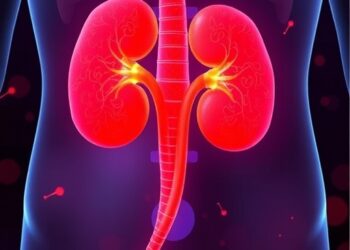SINGAPORE — It was earlier discovered that a variation in the PAX4 gene specifically predisposes East Asians to a higher risk of developing Type 2 Diabetes (T2D), increasing lifetime risk by up to 1.8 times1. A new study, now published in the journal Nature Communications, reveals for the first time, how an East Asian-specific PAX4 gene variant, R192H, impact the development and function of beta cells in the pancreas. These beta cells play a vital role in producing insulin, the hormone that regulates blood sugar levels and helps prevent serious complications in diabetic patients.The insights gained from this study pave the way for potential therapeutic interventions and personalised approaches in diabetes prevention and management2, marking a significant step in the ongoing fight against diabetes.
T2D is a chronic metabolic disease that impacts more than 500 million individuals in East Asia. In Singapore, where people of East Asian descent constitute the largest ethnic group (approximately 75 per cent of the population), this PAX4 R192H gene variant is present in 10 per cent of the population3, increasing the risk of diabetes specific to these East Asian PAX4 R192H gene carriers.
Led by Dr Adrian Teo, Senior Principal Scientist at A*STAR’s Institute of Molecular and Cell Biology (IMCB), the international research team consisted of cross-disciplinary scientists from IMCB, National University of Singapore (NUS), Stanford University and the University of Oxford, as well as clinicians from National University Hospital (NUH) and Singapore General Hospital (SGH).
The team used two types of cells — human pancreatic cells and donor-derived human induced pluripotent stem cells (hiPSCs) — to study the role of the PAX4 R192H variant in the development and function of pancreatic beta cells. Comprehensive molecular and genetic analyses revealed that the PAX4 R192H variant result in defective beta cells with lower functionality, leading to reduced insulin production. Collaborating with researchers from Stanford University and the University of Oxford, the team demonstrated that correcting the PAX4 R192H variant through gene-editing techniques can reverse some of these defects.
Additionally, human clinical studies conducted by the NUS, NUH and SGH team found that healthy individuals carrying the PAX4 R192H variant secreted significantly less insulin. This suggests that even before the onset of T2D, these individuals exhibited signs of diminished beta cell function, which are crucial for insulin production and blood sugar regulation.
This study provides new insight into the genetic influences on T2D specific to East Asian populations, which could help advance the development of therapeutic solutions to fight diabetes in Singapore. The research team is also looking into the possibility of diagnosing and editing the PAX4 R192H gene variant to restore insulin content in the beta cells for better patient outcomes.
“This study is the first to reveal how the East Asian-specific PAX4 R192H gene variant impact human pancreatic cells and contribute to diabetes risk. Collaboration with our clinician partners remains key to the success of this research, and these partnerships will aid in identifying better interventions for metabolic diseases such as diabetes. We are now investigating gene therapy to edit the PAX4 R192H variant to assess its potential in mitigating the increased diabetes risk,” said Dr Adrian Teo, Senior Principal Scientist, A*STAR’s Institute of Molecular and Cell Biology (IMCB) and senior author of the study.
“It’s truly exciting to add another piece to our understanding of how diabetes develops in humans. This study is particularly significant as it stems from an observation made over 10 years ago. It highlights the crucial role large-scale genetic studies in Asia play in advancing our knowledge of human biology, emphasising that we cannot fully rely on animal studies to comprehend the causes of human diseases.” said Prof Tai E. Shyong, Senior Consultant, Division of Endocrinology, Department of Medicine, NUH, and senior co-author of the study.
– End –
About A*STAR’s Institute of Molecular and Cell Biology (IMCB)
The A*STAR Institute of Molecular and Cell Biology (IMCB) is a premier research institute whose mission is to harness biology for transformational bio-therapeutics and diagnostics. With a strong emphasis on collaboration with stakeholders across the ecosystem in Singapore, IMCB aims to achieve scientific excellence and continues to nurture the next generation of scientists in order to create growth and enhance lives. For more information about IMCB, please visit www.a-star.edu.sg/imcb.
About the Agency for Science, Technology and Research (A*STAR)
The Agency for Science, Technology and Research (A*STAR) is Singapore’s lead public sector R&D agency. Through open innovation, we collaborate with our partners in both the public and private sectors to benefit the economy and society. As a Science and Technology Organisation, A*STAR bridges the gap between academia and industry. Our research creates economic growth and jobs for Singapore, and enhances lives by improving societal outcomes in healthcare, urban living, and sustainability. A*STAR plays a key role in nurturing scientific talent and leaders for the wider research community and industry. A*STAR’s R&D activities span biomedical sciences to physical sciences and engineering, with research entities primarily located in Biopolis and Fusionopolis. For ongoing news, visit www.a-star.edu.sg.
Follow us on




